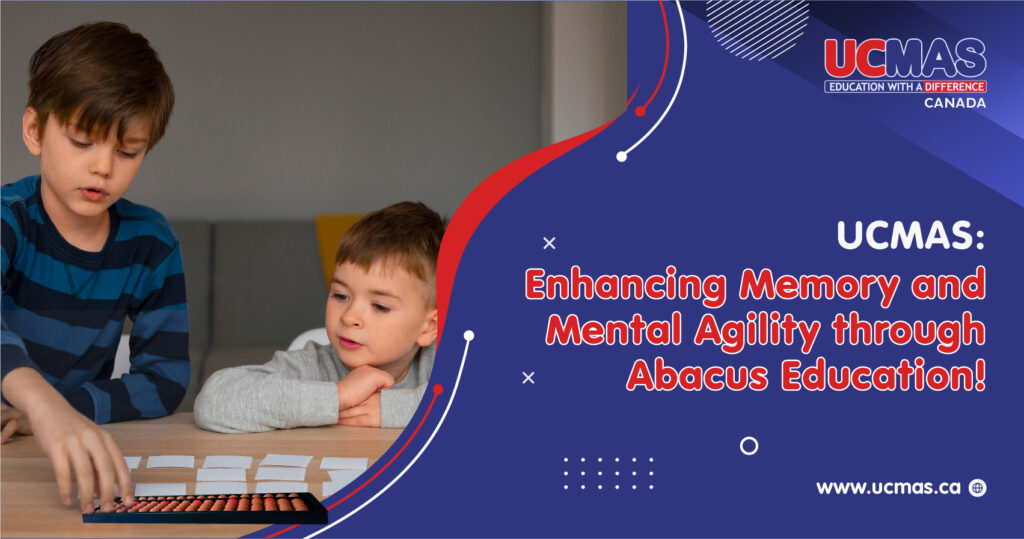The abacus is a centuries-old calculating tool that originated in ancient China. Comprised of rods or wires with beads that can be moved back and forth. The abacus provides a tangible representation of numerical values. With the help of the beads, users can perform various arithmetic operations such as addition, subtraction, multiplication, and division. While the abacus itself is a physical tool, the practice of using it leads to the development of mental calculation abilities.
Math and numbers are typically highly challenging for kids! Abacus learning is one of the best techniques to improve mathematical fluency and ability. Many pupils benefit from learning math with an abacus since their confidence and knowledge increase from a young age, which helps them develop an interest and enthusiasm for math. It not only helps in calculating simple arithmetic operations like subtraction, addition, division, and multiplication but also helps in the effective counting of decimal points, negative numbers, etc. As it aids in learning math operations from the most fundamental to the moderately sophisticated, it is a tool for improving mental math abilities.
The use of an abacus improves calculation skills, enables pupils to finish calculations more quickly and precisely, and encourages a stress-free approach to learning math subjects that increases confidence. Learning the abacus helps with logical reasoning and focusing on getting the proper answer, which both aid in problem-solving abilities. In addition to teaching math, abacus programs help students focus better, increase their sense of self-worth, and raise their confidence. Encouraging memory and creativity, it improves mental abilities including visualization and memory, and aids in impromptu writing and reading.
5 Benefits of Learning with an Abacus
- Helps in Enhancing Cognitive Skills : Abacus learning offers numerous cognitive benefits that extend beyond simply improving arithmetic abilities. Research has shown that regular abacus practice enhances concentration, memory, and visualization skills. When using the abacus, learners must concentrate on the task at hand, visually represent numbers and calculations, and remember intermediate results. These mental processes stimulate brain development, strengthen neural connections, and improve overall cognitive function.
- Develops Number Sense : One of the key advantages of abacus learning is the development of a strong number sense. A person’s innate awareness of numbers and their relationships is called having number sense. By using the abacus, learners gain a deep understanding of the base-10 number system and the concept of place value. They develop an innate sense of how numbers interact and how calculations can be simplified. This intuitive grasp of numbers extends beyond the abacus, allowing individuals to mentally manipulate numbers and solve complex problems efficiently.
- Increases Mental Calculation Speed : One of the most impressive outcomes of abacus learning is the significant improvement in mental calculation speed. Regular practice with the abacus trains the brain to process numerical information rapidly and accurately. As learners progress, they gradually internalize the techniques and visualizations used on the abacus, enabling them to perform calculations mentally, without the need for physical tools. This mental agility not only saves time but also allows individuals to approach mathematical challenges with confidence and flexibility.
- Build a Strong Mathematical Foundation : Abacus learning serves as an excellent foundation for advanced mathematical concepts. The spatial awareness and logical thinking fostered through abacus practice form a solid basis for understanding abstract mathematical ideas. Learners develop a deep comprehension of mathematical operations, algorithms, and problem-solving strategies. Additionally, the confidence gained from successfully tackling complex calculations using the abacus encourages individuals to approach more advanced mathematical topics with enthusiasm and curiosity.
- Boosts Overall Confidence : Mastering mental math through abacus learning profoundly impacts a child’s self-confidence. As learners progress and witness their own growth, they become more self-assured in their mathematical abilities. The sense of accomplishment derived from performing mental calculations quickly and accurately not only boosts confidence in mathematics but also translates to other areas of life. Students who excel in mental math often exhibit increased confidence in problem-solving, critical thinking, and decision-making, providing them with a competitive edge in academics and beyond.
In an era dominated by calculators and digital tools, the traditional abacus may seem to be outdated. However, the importance of abacus learning in cultivating mental math skills cannot be overstated and hence the UCMAS abacus program serves as a bridge between the physical and mental realms, offering a tangible representation of numbers while fostering mental agility and cognitive development. By embracing abacus learning at UCMAS, children unlock the power of mental math, enabling them to excel in mathematics, sharpen critical thinking skills, and build a strong foundation for lifelong learning.






